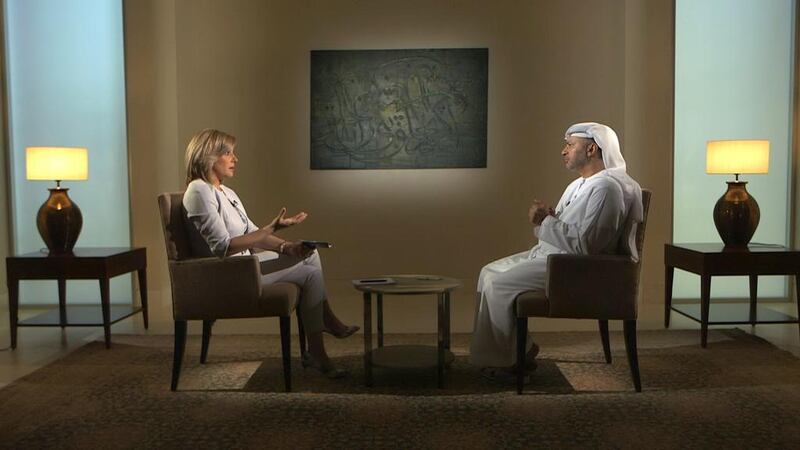ABU DHABI // GCC leaders will demand a political commitment from the US that guarantees that Washington’s nuclear agreement with Iran will seek to curtail Tehran’s expansionist policy and respect its Arab neighbours, said the UAE’s Minister of State for Foreign Affairs.
Speaking to Sky News Arabia, Dr Anwar Gargash said president Barack Obama’s invitation to the leaders of the Gulf Cooperation Council to a meeting at Camp David was “positive”.
However, he said “the final judgment hinges on the outcome” of the meeting.
The results of the forthcoming meeting in Camp David will be “modest” if they turn out to be a mere general statement on the security of the region and a talk on defence systems, Mr Gargash said.
The relationship between the GCC and Washington is interdependent, he said, explaining that if the GCC needs Washington, then Washington needs the GCC.
“The major issue in Arab-Iran relations is Iran’s desire for expansion,” Dr Gargash added.
“The nuclear agreement between the West and Iran created a new dynamic ... Indications say it is not in interest of moderate Iranians,” he said, adding that the nuclear agreement will help Iran’s expansion at the expense of Arabs.
Leaders of the GCC nations – Saudi Arabia, UAE, Kuwait, Qatar, Bahrain, and Oman – will meet Mr Obama at the White House on Wednesday and at Camp David on Thursday.
Saudi Arabia’s King Salman has designated Crown Prince Mohammed bin Nayef to attend this week’s GCC summit in his place, said the official Saudi Press Agency on Sunday quoting foreign minister Adel Al Jubeir.
Dr Gargash also commented on the situation in Syria during the interview with Sky News, saying: “I don’t think there will be a resolution to the crisis in Syria in the near future. Current movements have not yet reached the level of a final solution.”
“The fall of Bashar Assad will not mean that Syria will fall into the hands of extremists. There is a way in the middle between the these two extremes”, he said, adding that Iran is not giving up on its support for Mr Assad because it does not have other alternatives.
“We cannot imagine a moderate and secure Arab region without a stable and prosperous Egypt. Had the Muslim Brotherhood continued to rule Egypt, the situation in the Arab region would have been much worse,” he said.
Dr Gargash said that the UAE looked forward to a Gulf region where Saudi Arabia plays an important role and an Arab region where Egypt plays an important role.
* Wam, with additional reporting from Reuters





